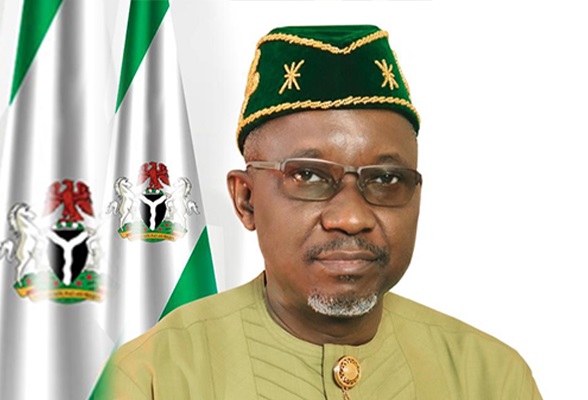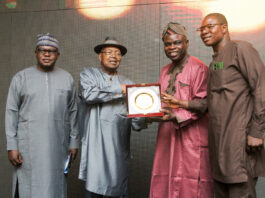Oil and gas stakeholders lay proviso for new gas investments
CHIGOZIE AMADI
As part of effort to boost investment in the nations oil and gas sector, Indigenous and IOCs in Nigerian petroleum industry has called for an enhanced operating environment that guarantees commercial returns on invested capital.
The stakeholders who spoke at a webinar also declared an urgent need for enhanced transparency, short approval cycles, minimized risks and deepened infrastructure build out.
The webinar with the theme ‘’Catalyzing Investments for Nigerian Upstream Upstream Gas’’ was hosted by the Minister of State for Petroleum Resources in charge of Gas, Hon Ekperikpe Ekpo, to mark his second year on the seat.
With sub themes on global trends, opportunities and challenges; keynotes and panel debates pitched government agencies with presentations on existing incentives and infrastructure development efforts, while players pointed at issues that undermine bankability of investments in the local gas industry.
Eminent member of the Independent Petroleum Producers Group (IPPG), Dr Layi Fatona, hammered on timelines of implementing existing policies and incentives enunciated by the government for gas investments.
Dr Fatona who sits on the boards of Renaissance Africa Energy Company Limited, Aradel Holdings Plc, and ND Western Limited called on regulators in the industry to ensure timely implementation of policies and executive orders designed to enhance efficiency in the industry.
He demanded government to increase the level of transparency in the industry and stabilize tariffs for domestic gas supply.
He also pointed at inadequate infrastructure for shipping produced gas from oilfields and processing centers to demand centers.
He proposed establishment of visible markers of progress in the Decade of Gas program, insisting that government must provide data on investment flows and cost cutting benefits achieved so far in the program implementation.
In describing gas as Nigeria’s foundation for prosperity, Dr Fatona pointed at efforts of his companies to deepen domestic gas supply and meeting feedgas obligations to the Nigeria LNG Limited.
He also pledged that Renaissance Africa Energy would remain strong in delivering on gas supply obligations inherited from defunct Shell Petroleum Development Company (SPDC) Limited.
He expressed redness of the company to collaborate with IPPG peers in harnessing flare gas for supply into evolving gas market as the power sector gets increasingly liberalized and decentralized.
In his own remarks, the Chairman of Chevron in Nigeria, Mr Jim Swartz, noted that process cycle time with government agencies still needs to be shortened to achieve quicker results in the industry.
He also pointed at lingering risks in the operating environment, lamenting the attendant cost escalation in the opera of companies.
Jim Swartz who is on the Oil Producers Trade Section (OPTS) of the Organized Private Sector (OPS) called on the government to provide necessary infrastructure for connecting gas to market.
He made it clear that capital allocation by companies align with strong potentials for enhanced returns on investments.
He pointed at Chevron’s 60 years of steady investments in Nigeria’s oil and gas development, adding that the company championed development of gas export conduits that ship Nigerian gas to regional markets.
He also noted that Chevron pioneered production of clean diesel from natural gas at its Escravos Gas-to-Liquid (EGTL) plants in Nigeria.
Mr Swartz made it clear that Nigeria has a compelling gas investment proposition with its vast reserves in conventional and deep water basins.
He stressed the urgent need for seize prevailing opportunity to leverage infrastructural development derive the full benefits of the resources.
In calling for enhanced fiscal, security and policy incentives to pull the right capital allocation and unlock the resources, Jim Swartz proposed that the domestic market be empowered to deliver returns on allocated capital.
He also demanded that strategies for implementing laws and regulations must not undermine commercial expectations from invested capital.
Other concerns raised in the debate included bankability of gas investments through guarantee of market returns, justification of capital allocation among competing operating environments, enforceable offtake contracts, forex-Naira mismatch, capacity and quality of entities playing at the offtake side of the loop.
In laying agenda for players in the gas industry, the Executive Vice President in charge of Upstream at the Nigerian National Petroleum Company (NNPC) Limited, Udobong Ntia, reiterated national aspiration to increase gas output by 50 percent from current 8.0 billion standard cubic feet (Bcf) to 12 Bcf by 2030.
He also pointed at incentives provided by government to enable players realize the objective with a slew of 25 gas development investments some of which he said would achieve first gas before 2030.
Mr Ntia stated that executive orders churned out by President Bola Tinubu on fiscal incentives, cost efficiency and local content development are being implemented by the Nigerian Upstream Petroleum Regulatory Commission (NUPRC) for project maturation.
He added that gas production, processing and demand are critical to meeting policy goals in the industry.
Ntia said government was building infrastructure to deepen local gas market and leverage gas as transition and industrial fuels.
Engr Anyanwu who represented the Commission Chief Executive (CCE) of the NUPRC, Engr Gbenga Komolafe, stated that the regulator was addressing approval delays in the industry with digital innovation that minimizes human interface.
He said government was also tackling concerns over sanctity of contracts, legacy debts and ESG through inter-agency collaboration.
Hon Ekpo who listened through the debate expressed appreciation for the frank conversations on issues in the industry, reiterating the need for continuous reforms and infrastructure development.
He called on regulators and agencies of government to pursue investments boldly and translate the insights from the webinar into actions that transform gas into catalyst for national economic development.








